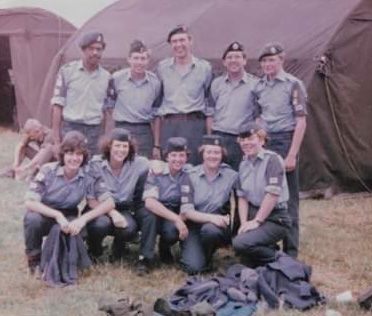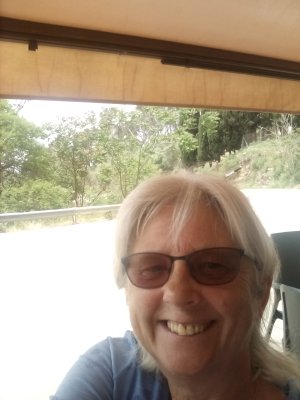
I served in the Royal Air Force, 1978 to 1990.
Passed basic and trade training as a Stewardess. On leave I met a woman and realised I was lesbian. I knew I had to keep my sexuality secret, so I had to lie and change Lin’s name to Glen.
I performed my duties to the best of my abilities, but I was forever vigilant, feeling I was being watched. At functions, I always had a male plus one so as not to stand out. Going home I was so careful, paranoid in case anyone saw me in a lesbian bar. Once, I even tried breaking my leg so as not to return from leave. It was living a lie all the time.
The worst incident was when a senior RAF man, suspecting I was Lesbian, ordered me to his married quarter whilst his wife was away. He indecently assaulted me; I couldn’t tell anyone! I served my time and left at my 12-year term. I loved my job and my colleagues, but I felt like a traitor as I could never show the real me. If being openly lesbian had been possible I would have signed on and done 22 years.
Within months of leaving the RAF I suffered a breakdown; I was disgusted with what I had been through serving as a Lesbian and attempted suicide. I became an introvert, lost all self-confidence. I was soon on medication to battle anxiety and depression, leading to me trying to fight The RAF myself from 2013.

I struggled, with my past, present and future.
My anxiety and depression meant I was unable to work in the years following leaving the RAF and the UK. With the help of the RBLA I tried, unsuccessfully, to claim my RAF pension early. They said my illness was not caused by my RAF service, despite my doctor’s report.
I’ve attempted suicide twice more. My Spanish psychiatrist confirmed my diagnosis and that my service in the RAF was the root cause. I have a condition named as Recurrent Depressive Disorder, recognised throughout Europe.
My anxiety and depression started during my last 3 years of RAF service. Never able to openly express feelings for another woman. Unable to see an RAF doctor or even a padre for fear of being reported and dishonourable discharge. I had to keep it secret, I went into myself becoming isolated.
I still have nightmares about being in the RAF but they insisted there were no stressors that would cause my depression. I loved my job but looking back there was no care, no respect for someone like me.
Eventually I was awarded my pension early because they recognised, I was ill and couldn’t work but still refused to admit my time in the RAF was the cause.
Since discovering Fighting With Pride, I’ve decided to meet with some friends I had in the Airforce all those years ago, this time they will meet the real Wendy.